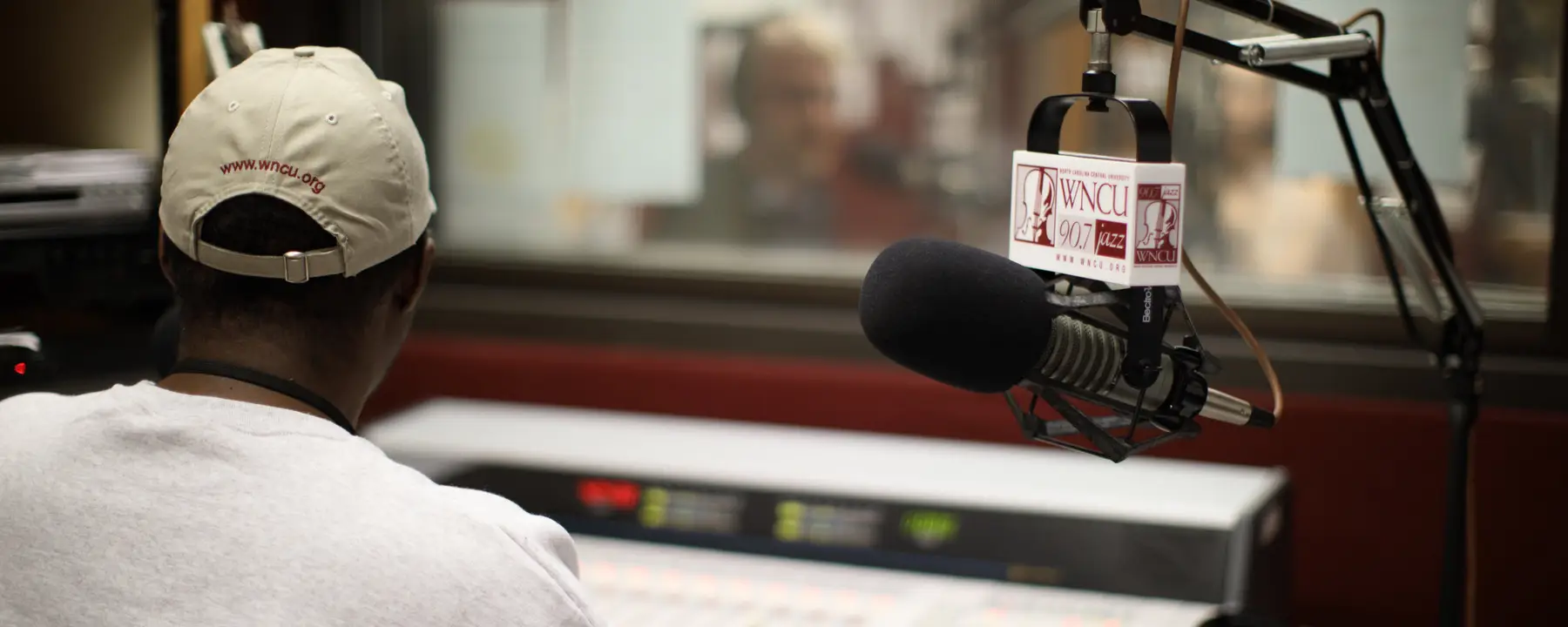Weekly radio show translates scientific research for public audiences
There’s an old joke among graduate students that if you put a $100 bill in your dissertation and come back in 50 years, chances are that the $100 bill would still be there.
Scientific research is often not considered light reading, as scientists usually write for other scientists, not the public. Study results rarely leaves the scientific community, and the public is usually left in the dark about what research is being conducted or how the work might affect their lives.
As a result, scientists often lack credibility among members of the public who do not understand the research, cannot verify or comprehend the results, and feel scientists are talking down to them.
On Air: Telling the Story of Research
Dr. Brian Southwell, who leads our Science in the Public Sphere Program, is trying to change that by translating scientific research—the results and the process—beyond the lab.
Dr. Southwell uses radio to highlight inspiring and creative work by our scientists and those at other research organizations. He hosts a weekly public radio show for WNCU, “The Measure of Everyday Life,” in which he presents and discusses new scientific research with experts. He uses the 30-minute show to tell the emotional journey of a research study.
The show provides a concise narrative of how the science and research came about. It starts with the question researchers sought to answer and covers how the research was conducted, what challenges were overcome to complete the study, and how the results fit into the overall context of the scientific community.
Launched in 2015, the show has covered many topics, including the use of wearable technology in social science, ways to reduce school dropout rates, the evolution of survey research, hazard mitigation, predatory lending, and why people watch cat videos.
Finding the Drama in Science
Beyond the radio show, Dr. Southwell encourages scientists to be more open about their work, to share their accomplishments with others, and to view their work as a part of public discourse. He sometimes even puts researchers in conversation with filmmakers and community leaders. The show has featured novelists, and television pioneer Norman Lear once appeared on the show.
The challenge is to focus on what makes social science research interesting. Too often, researchers and nonresearchers alike assume science is boring. But nearly every research effort originated from a compelling reason or pressing question. That reason or question provides context and clarity for why others should care.
After all, research outcomes often have profound effects on the world—from improving the way we communicate to curing diseases.
As an expert on communication science, Dr. Southwell encourages other researchers to present their studies as a journey and use a storytelling approach to walk readers through the trials and tribulations to the outcome. His own research shows that scientists should strive to present their work in approachable language, avoiding jargon when possible.
Building Credibility and Support for the Scientific Community
By bringing science to the public through creative storytelling and plain language, the scientific community stands to gain substantial credibility. Research can and often does have significant impact on humanity, and sharing it with the broader public builds trust and support for science.
That support can help bolster funding for additional research or inspire more young people to pursue research careers to challenge current theories or uncover new scientific breakthroughs.
- RTI-funded
- North Carolina Central University


